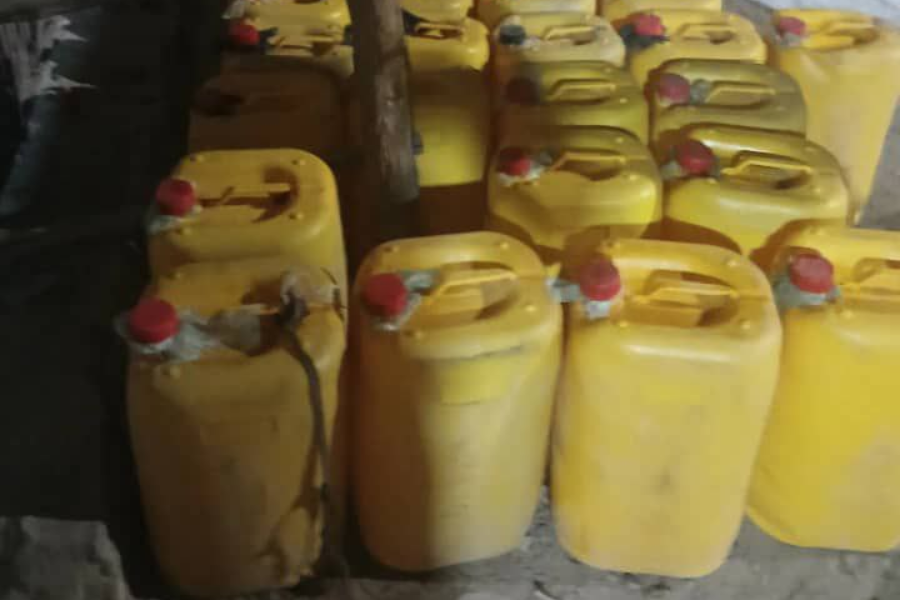
Sunday with Eden | Aug 10,2024
Ethiopia's automotive landscape is facing uncertainty as Lifan Motors, one of the pioneering assemblers in the country, faces a myriad of challenges that could lead to its exit from the Wollo Sefer area in the capital to the Eastern Industrial Park. The once-thriving company in Dukem town, Oromia Regional State, has not produced a single vehicle in the past two years due to an acute foreign currency crunch.
The Chinese company once boasted a production capacity of around 60 cars a month through a decade of operation. However, grappling with the inability to access nearly one million dollars monthly forced the management to cease production.
"We're in a serious struggle," said Mark Ma, general manager of Lifan Motors.
Lifan Motors has faced various challenges over the years, including disputes with partners, changes in management, and the inability to secure a stable supply chain for key components. The Company entered the Ethiopian market in 2007 through a partnership with the now-defunct Holland Cars managing to sell 50 locally assembled cars a month. Its early engagement ended in a bitter dispute with the founder, Taddesse Tessema, who left the country after a few years.
Mark Ma highlighted that around 40 employees have stopped their daily commute to work due to the sheer lack of activity. The plant that once had a capacity of producing up to 2,000 units a year now averages around three million Birr in revenues from providing maintenance services to cars sold a few years ago. Meanwhile, operational costs and staff salaries have cast a grim shadow.
The manager indicated their futile attempts to secure foreign currency through appeals to the National Bank of Ethiopia (NBE) and commercial banks left them in a state of uncertainty. He recalled efforts to engage in the coffee export sector in the early days of the foreign currency squeeze five years ago, which were later abandoned due to conflicts with the business license that strictly specified auto assembly.
"We've stopped planning beyond three months," Mark told Fortune.
The Company's plans for expansion and automotive exports to Egypt and Sudan failed to materialise, contributing to its decline in operations fueled by the inability to bring in some of the key inputs from its headquarters in Chongqing municipality, Southwest China.
The forex crunch has been a point of contention, hindering the vitality of the export sector and creating obstacles for manufacturers reliant on imports.
Getnet Haile, managing partner of Target Consultants, points to a long-term adjustment of the forex regime towards liberalisation as the main solution to currency woes consistently faced.
He believes the strict control of foreign currency "has hurt more than it has helped."
While he recognises room for smaller import-based businesses through informal routes or exports at dismal prices, he argues manufacturers who receive their inputs from a single international supplier will continue to struggle.
Getnet pointed to the country's vast trade deficit as signalling a reliable route for financial resources to exit, which will mostly be used to facilitate imports by individual importers. He reasoned that the tight control on foreign currency hampers the vitality of the export sector as businesses rely on it only to fund their imports.
The Eastern Industry Park fully owned by Chinese investors, has been Lifan Motors' sanctuary for a decade. The federal government had covered 30pc of the internal infrastructure costs for the country's first industrial park only to build its Industrial Parks later in 2014.
Launched in 2007, the Park houses 140 factories, employing around 23,000 workers. With six of the 127 factories being exporters, the current landscape reveals that most producers cater to local demand rather than engaging in international trends for the Park initially envisioned as a hub for industrial export growth.
Yosef Sultan, a representative from the Investment Commission at the Park, notes that producers are largely responsive to local demand rather than international trends.
"Almost all produce for the domestic market," he told Fortune.
The scarcity of locally assembled vehicles and the soaring prices of imported alternatives have created a market gap that Lifan Motors once filled. The potential void left by the Company's departure could further strain the already challenging dynamics of the automotive sector as the models gained popularity over the years when the prices of imported vehicles surged.
A car dealer for the last decade, Kidus Beshu observed a spike in demand for the Lifan models over the past three years as the price of imported vehicles doubled. Meanwhile, most models cost between 800,000 Br and 1.25 million Br depending on the condition and mileage while imported alternatives cost at least two million Birr.
"No car dealer would pass up a model in good condition," he said, indicating that prices have gone up with the production halt.
Ethiopia spent close to five billion Birr on the import of road motor vehicles last year, with the value highly understating the amount of foreign currency used due to the prevalence of under-invoicing prices in the sector. Commissioner Debele Kabeta affirmed the plight two weeks ago during a panel discussion on manufacturing in Ethiopia.
With around 1.5 million registered vehicles, the country has one of the lowest car density rates in the world at around two cars for 1,000 people, with half of the vehicles estimated to be in the capital. The combination of five different duties on vehicles and the restriction on imports of vehicles by levying excise taxation of around 105pc for cars above eight years old have been critical factors fueling the demand and sharp ascent in prices.
The 40-year-old real estate broker Mikias Chernet indicates that buying a new car in the market would be a challenge considering the high cost. He has been driving a 520 subcompact sedan Lifan for the past six years after purchasing it for 235,000 Br. He believes the vehicle would be an asset despite its issues with the overheating and low suspension often being a victim of speed breakers.
Editors' Note: This article was updated on January 5, 2024, as it has come to our attention that Lifan Motors is moving out of the Wollo Sefer area to the Eastern Industrial Park.
PUBLISHED ON
Dec 30,2023 [ VOL
24 , NO
1235]

Sunday with Eden | Aug 10,2024

Editorial | Nov 02,2024

Sunday with Eden | May 31,2025

Fortune News | Jul 19,2025

View From Arada | Jun 28,2025

Radar | Jun 29,2024

Viewpoints | Jun 14,2025

Fortune News | Apr 15,2023

Fortune News | Sep 08,2024

Viewpoints | Sep 01,2024

Dec 22 , 2024 . By TIZITA SHEWAFERAW
Charged with transforming colossal state-owned enterprises into modern and competitiv...

Aug 18 , 2024 . By AKSAH ITALO
Although predictable Yonas Zerihun's job in the ride-hailing service is not immune to...

Jul 28 , 2024 . By TIZITA SHEWAFERAW
Unhabitual, perhaps too many, Samuel Gebreyohannes, 38, used to occasionally enjoy a couple of beers at breakfast. However, he recently swit...

Jul 13 , 2024 . By AKSAH ITALO
Investors who rely on tractors, trucks, and field vehicles for commuting, transporting commodities, and f...

Oct 25 , 2025
The regulatory machinery is on overdrive. In only two years, no fewer than 35 new pro...

Oct 18 , 2025
The political establishment, notably the ruling party and its top brass, has become p...

Oct 11 , 2025
Ladislas Farago, a roving Associated Press (AP) correspondent, arrived in Ethiopia in...

Oct 4 , 2025
Eyob Tekalegn (PhD) had been in the Governor's chair for only weeks when, on Septembe...